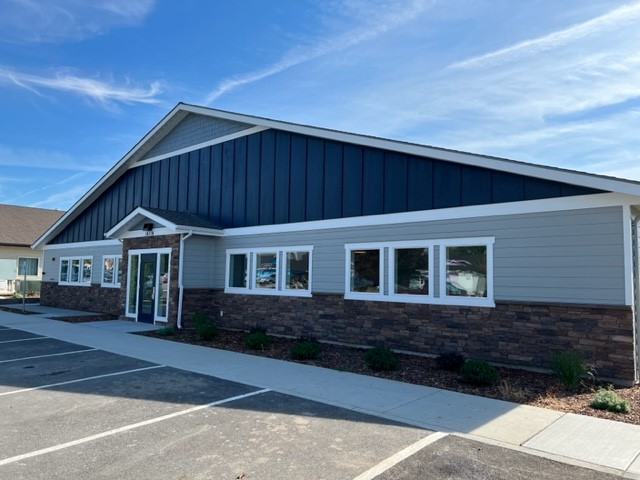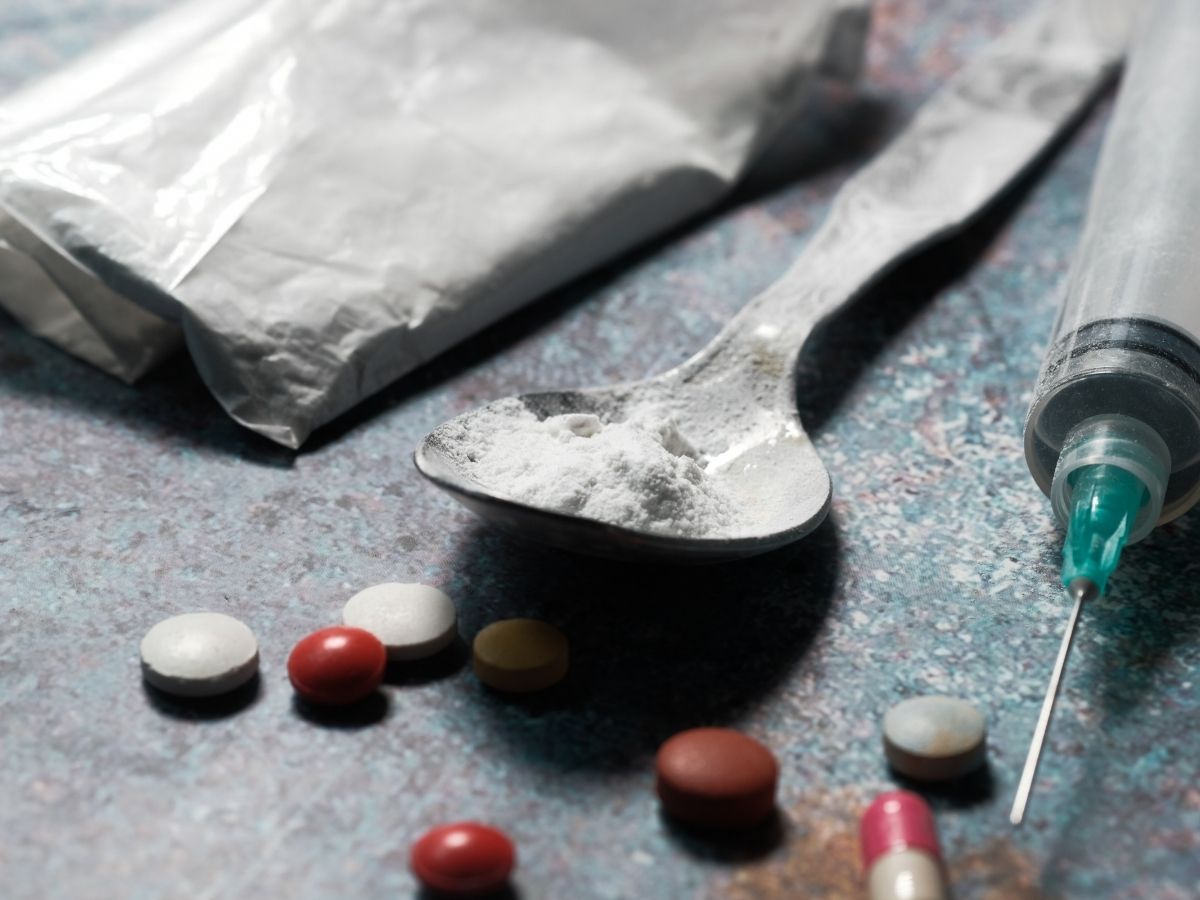
Likely, you are reading this because you have a drinking problem or because a loved one does. Alcoholism, or alcohol use disorder (AUD), can creep up on you. It begins small enough, only to become life-altering.
We understand how early recognition changes lives, and we want to guide you through the early signs of alcoholism. We will discuss what to look out for, the reason it occurs, and how to solve it. Keep in mind that you are not the only one feeling this way; others find hope and recovery each day.
At We Level Up Washington, we specialize in compassionate care for addiction and mental health. Should there be patterns here you recognize, get in touch with us as soon as possible. Now, let us discuss how to recognize substance use disorder signs in the early stages; it may even help save a life.
Skip To
Table of Contents
What is Alcohol Use Disorder (AUD)?
Alcoholism entails loss of control when drinking alcohol, where alcohol use manipulates thoughts and actions while causing great harm. It is an illness that is determined by genetics, environment, and psychology.
Millions of people have alcohol use disorder (AUD) in the United States. Recent data shows that about 14.5 million adults struggle with AUD, including heavy drinkers and those dependent on alcohol. Binge drinking—consuming five or more drinks for men or four for women in a short time—often signals the start. If you notice yourself or a loved one increasing the amount of alcohol to feel the same buzz, that’s a red flag.
Alcoholism Causes and Risk Factors
Nobody wants to become an alcoholic; still, there are some factors that increase the risk. Genetics play a big role; if a family member battles alcohol addiction, your chances increase. Psychological issues like stress, anxiety, or depression can push someone toward heavy drinking as a coping tool. Social pressures, such as a culture of binge drinking at parties or work events, add fuel.
Trauma or mental health problems often coexist with AUD. For instance, people with alcoholic tendencies might drink to numb pain, leading to long-term health problems. Such environmental triggers as having easy access to alcohol or being influenced by peers are important as well. Knowing all this makes you realize that it is not a simple matter of willpower because it is a conglomeration of many factors that require professional help.
End the Emotional Pain. Get Your Life Back.
Feeling Depressed, Anxious or Struggling with Mental Health Illness? Get Safe Comfortable Mental Health Dual Diagnosis High-Quality Therapy From Counselors That Care. Begin Your Recovery Now.
Hotline: (509) 348-4077

Early Signs of Alcoholism: What to Look For
Spotting early signs of alcoholism lets you act before things worsen. These symptoms include behavioral changes, physical tolls, and emotional shifts.
Behavioral Signs
Alcohol problems are usually manifested through behavior. You may notice the following.
- Alcohol consumption in secret or alcohol when alone.
- Spouting excuses to start drinking or keep drinking (“just one more”)
- Failure to fulfill obligations in work, home, or school due to hangovers or cravings.
- You are aware that drinking is contrary to the interests of those who love you or runs against the law. But you still continue to drink.
- Arranging life so that one cannot live without alcohol, missing out on life without it.
If someone stops drinking abruptly but resumes with more intensity, that’s a warning sign of growing dependence.
Physical Signs
You have distinct indications when alcohol has its grip. Early signs include:
- Tolerance building requires you to have more alcohol to get the same effect.
- Headaches (frequent), nausea, or shakiness following consumption of alcohol.
- Disturbances in sleeping, such as insomnia or poor rest, despite feeling tired.
- Empty calories induce weight loss or gain
- Early signs of liver failure from alcohol, such as yellowing skin (jaundice), fatigue, or abdominal pain—though these might appear later- heavy drinking accelerates them.
The Centers for Disease Control and Prevention (CDC) says that excessive alcohol harms nearly every organ, leading to health problems like high blood pressure or weakened immunity.
Psychological Signs
Mental health suffers too. Watch for:
- Thoughts of craving such that one cannot concentrate without taking alcohol.
- Irritability, mood swings, or anxiety when sober.
- Denial, such as minimizing your drinking and its effects.
- Experience of shame/guilt on days of drinking.
- Self-medicating depression or stress to the point of drinking to increase a loop.
Early signs of alcohol dependence show here, as the brain rewires to prioritize drinking. Explore this research on early craving symptoms.

Early Symptoms of Alcohol Withdrawal
When an addiction takes hold, withdrawal is a result of stopping. Early signs of alcohol withdrawal include the following.
- Shakiness or the shakes a few hours after the last drink.
- Perspiring, tachycardia, or nausea.
- Anxiety, restlessness, or insomnia.
- At worst, hallucinations or life-threatening epileptic attacks—get emergency care.
These symptoms signal that the body has become dependent on alcohol. They are not to be ignored; detoxification under medical supervision protects against complications.
Get Help. Get Better. Get Your Life Back.
Searching for Accredited Dual Diagnosis Mental Health Centers Near You?
Even if therapy failed previously, or are in the middle of a difficult crisis, we stand ready to support you. Our trusted behavioral health specialists will not give up on you. When you feel ready or just want someone to speak to about counseling alternatives to change your life call us. Even if we cannot assist you, we will lead you to wherever you can get support. There is no obligation. Call our hotline today.
FREE 24/7 Dual Diagnosis Mental Health Services HotlineEarly Signs of Alcohol Dependence and Long-Term Effects
The creep of dependence comes when there is a compulsion to drink alcohol, and it no longer feels like a choice. Signs include binge drinking patterns or drinking daily to function. Long-term, this leads to alcohol addiction with risks like heart disease, cancer, or mental health declines.
People with alcoholic behaviors might isolate, lose jobs, or strain relationships. Heavy drinkers face higher odds of dual diagnosis—AUD plus conditions like depression. Support groups and therapy help break this.

When to Seek Treatment for Alcoholism
When there are vibes, take action. Speak with a physician or loved one. Warning signs like failed attempts to cut back mean professional help works best. Addiction treatment includes therapy, meds, and support to rebuild life.
Comfortable Facilities & Amenities
High-Quality Mental Health Services & Behaviroal Health Substance Abuse Treatment
Rehab Centers TourRenowned Mental Health Centers. Serene Private Facilities. Inpatient Rehab Programs Vary.
Mental Health Helpline: (509) 348-4077Proven recovery success experience, backed by a Team w/ History of:
15+
Years of Unified Experience
100s
5-Star Reviews Across Our Centers
10K
Recovery Success Stories Across Our Network
- Low Patient to Therapist Ratio
- Comprehensive Dual-Diagnosis Treatment
- Complimentary Family & Alumni Programs
- Coaching, Recovery & Development Events
- Comfortable Onsite Medical Detox Center
Treatment Options and Support
Recovery begins with admission of the problem. Options include:
- Medical Detox
- Medication-assisted treatment (MAT)
- Inpatient rehab
- Outpatient programs
- Therapy to address underlying causes
- Support groups like AA, NA, Refuge Recovery, SMART Recovery
- Healthy habits, physical activity, diet, and stress reduction
For those called alcoholic by others, remember—labels don’t define you; actions do.

Frequently Asked Questions (FAQs)
-
What are the first signs of liver failure from alcohol?
Look out for tiredness, yellowing (jaundice), abdominal bloating, or disorientation. Heavy drinking over time damages the liver, but quitting early can reverse some harm.
-
How do early signs of alcohol dependence differ from casual drinking?
Dependence entails cravings, tolerance, and withdrawal, whereas casual drinking remains controlled and periodical.
-
Where is a Spokane Valley, Washington alcoholism treatment facility?
At We Level Up Washington, you can receive holistic care within Spokane Valley as we have detox, therapy, and support that were designed to suit your needs.
-
Where can I find alcoholism treatment in Coeur d’Alene, Idaho?
We Level Up Washington provides easy-to-access recovery programs near Coeur d’Alene. If you or a loved one is struggling with alcohol addiction, seek professional help from us today.
World-class, Accredited, 5-Star Reviewed, Effective Mental Health Dual Diagnosis Programs. Complete Integrated Inpatient Rehab with Free Post Discharge Therapy Planning.
Hotline: (509) 348-4077End the Emotional Pain Rollercoaster. Gain Stability & Happiness Through Recovery Treatment. Start Mental Health Counseling Today. Get Free No-obligation Guidance by Behaviroal Health Specialists Who Understand Mental Health Recovery.
Summary
Call today to speak with our team and learn more about our programs. We Level Up Washington: (509) 348-4077. Your next step starts here.




